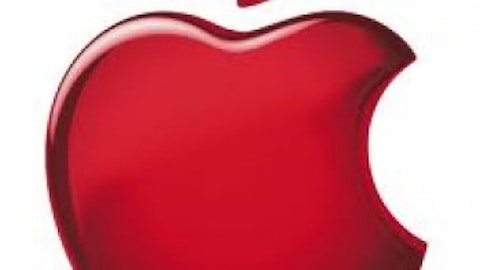Precedents
No other technology company has ever issued such a large block of preferred shares. However, other industry names are taking advantage of the low interest rate environment to enhance shareholder value.
Microsoft Corporation (NASDAQ:MSFT) has issued $2.2 billion in long-term debt to fund its dividend and share buyback program. Last November, Microsoft Corporation (NASDAQ:MSFT) sold $600 million worth five-year notes at 0.88%, $750 million of 10-year bonds at 2.13%, and $900 million 30-year bonds at 3.5%.
Even Amazon.com, Inc. (NASDAQ:AMZN) is getting in on the action. Last fall, the company issued $3 billion in debt is finance the purchase of its Seattle headquarters. Amazon.com, Inc. (NASDAQ:AMZN) sold $750 million three-year notes at 0.65%, $1 billion five-year notes at 1.2% and $1.25 billion of 10-year bonds at 2.5%.
Incredibly, Microsoft Corporation (NASDAQ:MSFT) and Amazon.com, Inc. (NASDAQ:AMZN) were able to raise these funds for only a few basis points above comparable U.S. Treasuries. Expect companies to continue to take advantage of record low interest rates by funding their operations with debt.
…but here’s the problem
Unlike debt, issuing preferred shares doesn’t reduce Apple’s cost of capital. As Apple increases its funding through preferreds, the cost of equity will rise proportionally to compensate for greater risk. As a result, the $150 billion in value creation Einhorn claims is fictitious.
This was the same logic used to create toxic mortgage products during the housing bubble. In theory, mixing sub-prime loans with AAA securities raised the quality of junk bonds in the portfolio. In reality, the sub-prime loans only diluted the quality of the entire pool.
Other issues
There’re other problems with Einhorn’s proposal:
Funding: Issuing $236 billion of preferred shares would require an additional $9.5 billion in dividend payments. This would significantly crimp Apple’s ability to fund new projects and impair the long-term viability of the company.
Taxes: The new preferred dividend would quickly exhaust the company’s domestic cash holdings. This would require Apple Inc. (NASDAQ:AAPL) to repatriate foreign reserves, resulting in a big tax bill.
Liquidity: Standard & Poor’s estimates the size of the U.S. preferred market to be worth $214 billion. Einhorn’s proposal would more than double the size of this market while assuming a 4% yield. Yes, interest-starved savers would initially line up for iPrefs, but such a large issue would be more costly than assumed.
Foolish bottom line
CEO Tim Cook is deploying capital prudently, and excess cash balances can be drained through traditional means. Until it becomes apparent Apple is squandering shareholder capital on overpriced acquisitions or frivolous side projects, investors should temper their calls for higher dividends or share buybacks.
The article David Einhorn is Wrong on ‘iPrefs’ originally appeared on Fool.com and is written by Robert Baillieul.
Copyright © 1995 – 2013 The Motley Fool, LLC. All rights reserved. The Motley Fool has a disclosure policy.





